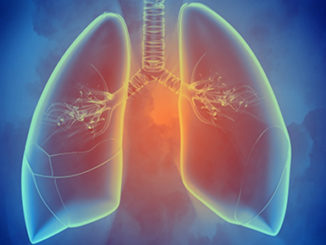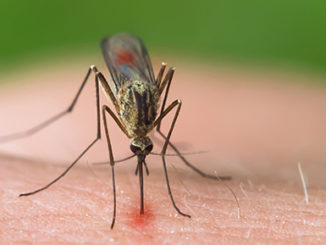Articles that explore the connection between epigenetics and diseases and disorders, including cancer, cardiovascular disease, diabetes, autoimmune disease, and more.
As we get older, our bodies begin to wear out and lose the ability to function as well as they once did. We start to ache for no reason, our hearing isn’t as adequate as it once was, and we become forgetful. Eyesight is usually one of the first casualties of aging. While most people will experience a deficiency in near focusing or presbyopia as they age, a common cause of gradual vision loss can be attributed to a disorder [more…]
Breathing can be difficult for millions of people around the world who have COPD. While there are available treatments that can reduce the symptoms of this condition, one major barrier to their effectiveness is corticosteroid resistance. The mechanisms that contribute to this type of resistance are unknown, but recent evidence suggests that certain epigenetic factors may play a role. COPD (or chronic obstructive pulmonary disease) is a term used to describe progressive lung diseases including chronic bronchitis and emphysema. Long-term [more…]
Alcohol is likely the most used and abused substance in the world. It’s fine to have a few cocktails or beers per week, but only for those that are of the legal drinking age. Underage drinking is a consistent issue faced in the United States today. According to the CDC, kids ages 12-20 consume about 11% of all alcohol in the US, and this can be problematic as it is often done in a bingeing manner, rather than a causal [more…]
As the world’s population ages, the demand for organs and ways to optimize the transplant process will only grow. While the exact interactions between different factors must be elucidated further, it is clear that allograft rejection is partially mediated by epigenetic mechanisms such as histone acetylation, DNA methylation, and microRNAs. This framework is useful when applied to the host and the graft as well as to the immunologic and nonimmunologic reasons for rejection. At this time individualized treatment is limited [more…]
Malaria is a serious, sometimes fatal disease that is caused by a single-cell parasite and transferred to humans by the bite of a mosquito. Each year, millions of cases of the illness are reported, predominantly in young children and pregnant women from the sub-Saharan African region. Although deadly, malaria is preventable and treatable if tackled early enough. However, one hindering issue persists – drug resistance. In recent years, it has become a significant hurdle in the global effort to eradicate [more…]
More families are living with autism today than ever before. It’s a common diagnosis with a prevalence of 1 in 59 children in the US. Despite all the efforts to understand this condition, there is still no known cause. The consensus among researchers is that autism is predominantly genetic with a few environmental factors involved. However, determining a heritable link here is complex since any number of genotypic variations could underlie autism. To better pinpoint genes that may contribute to [more…]
In the United States, obesity has become an epidemic that has been sweeping the nation for quite some time. Poor dietary habits have become far too customary among the American people, so it is no surprise that obesity rates are extremely high. Obesity presents a person with numerous adverse health effects that can shorten life expectancy like hypertension, diabetes, and perhaps most importantly, heart disease. Heart disease is currently the leading cause of death in both men and women in [more…]
Cancer is a complex disease influenced by numerous factors including genetic make-up, lifestyle, and the environment. Over the years, the growing field of epigenetics has greatly contributed to our understanding of cancer and tumor progression. It has also led to the development of novel drug therapies. Yet, despite the fact that epigenetic regulators have become attractive anticancer targets, many scientists believe that extra caution should be taken when assessing their overall effects. In a new study, one potential epigenetic therapy [more…]
Epigenetics has many connections to our cellular processes. It regulates the expression of our genes, so it wouldn’t surprise us that epigenetics is involved in the regulation of our circadian rhythms as well. But what exactly are these circadian rhythms and how can they be involved in certain processes of health and disease? What are circadian rhythms? Circadian rhythms are biological processes which govern not only our sleep-wake cycle, but also a wide variety of physiological functions, such as hormone release, feeding habits [more…]
Cervical cancer used to be the number one cause of death in women about a hundred years ago. But thanks to advancements in medical science, this disease is almost preventable today. However, cervical cancer (CC) still claims the lives of over 4,000 women each year in the US. While Pap and human papillomavirus (HPV) testing have significantly contributed to the lower mortality rates, there are still certain types of CC that are not easily detected. Now, a new technique has [more…]










